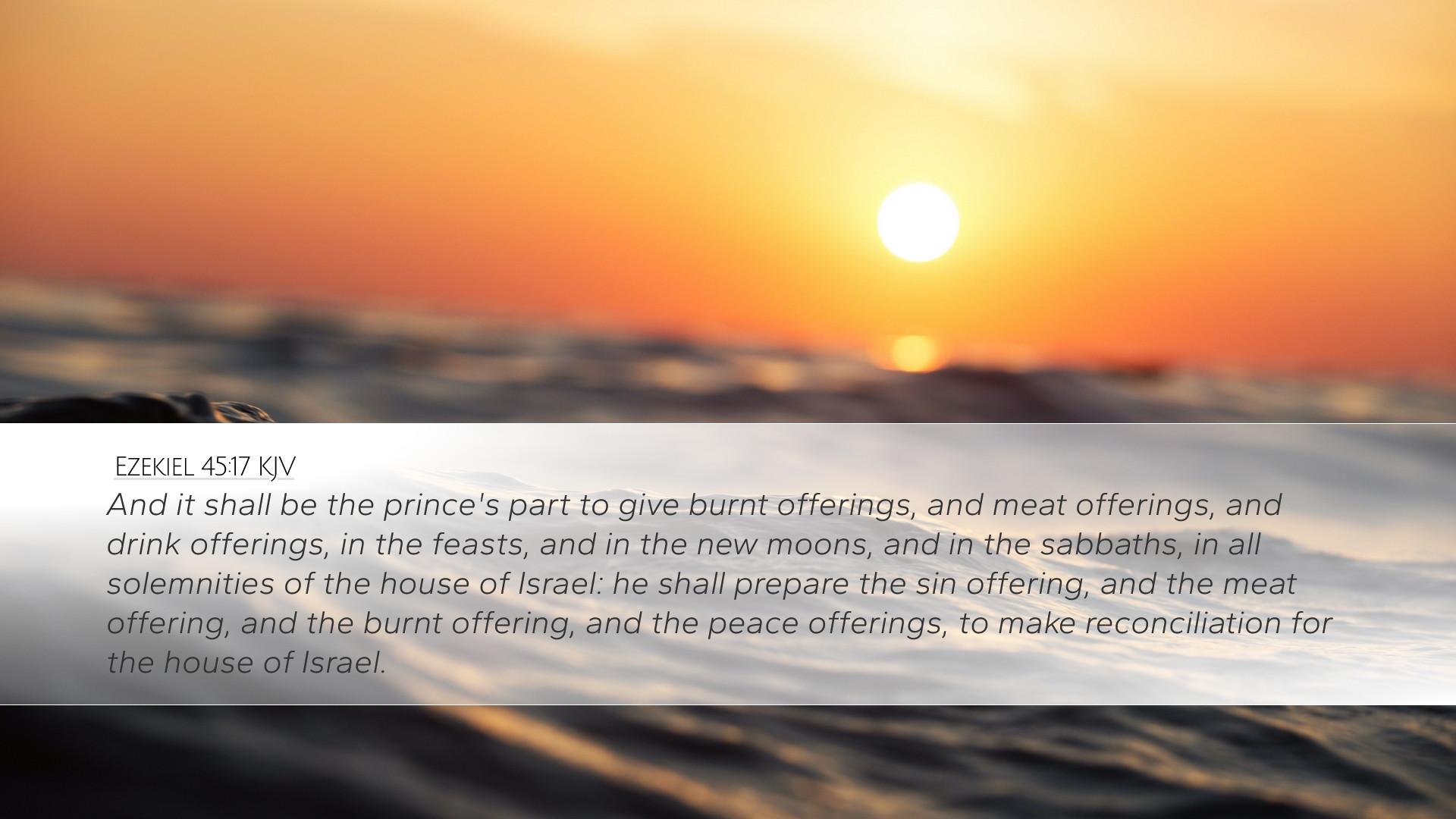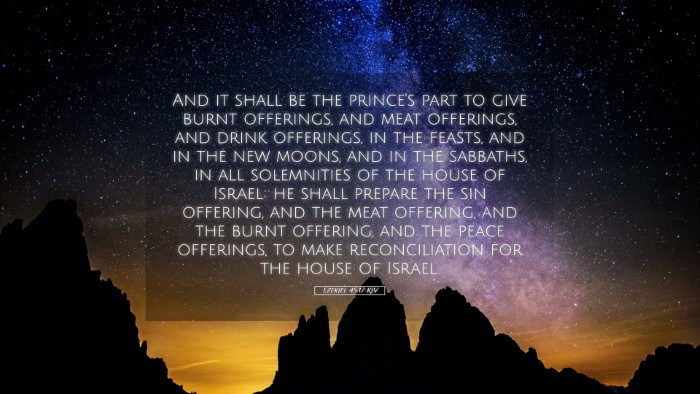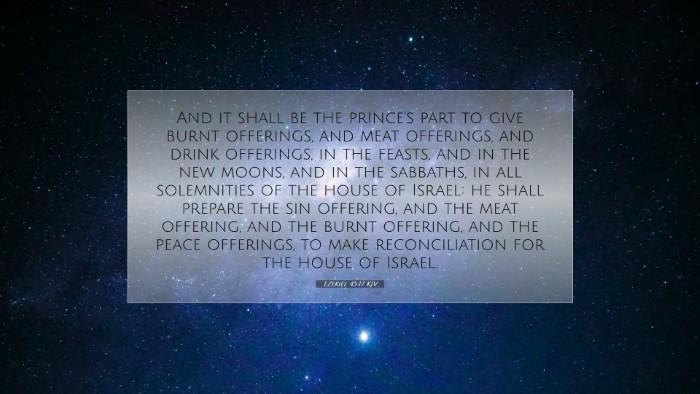Ezekiel 45:17 Commentary
Bible Verse: "And it shall be the prince’s part to give burnt offerings, and meat offerings, and drink offerings, in the feasts, and in the new moons, and in the sabbaths, in all solemnities of the house of Israel: he shall prepare the sin offering, and the meat offering, and the burnt offering, and the peace offerings, to make reconciliation for the house of Israel." (Ezekiel 45:17, KJV)
Overview and Context
This verse is situated within Ezekiel's vision of the restored temple and the reestablishing of worship in Jerusalem. Ezekiel aims to convey God’s intention for His people regarding worship, leadership, and communal responsibility as they return from exile.
The Role of the Prince
The term “prince” in this context refers not to a king but to a leader who represents the community. This leadership role is underscored by the responsibility for various offerings, demonstrating a servant-leader model.
Comments from Matthew Henry
Matthew Henry emphasizes that the prince’s duties are centered around spiritual leadership. He writes that the prince must not only lead in governance but also in worship. The offerings he presents serve as 'a public acknowledgment of God’s sovereignty and mercy.'
Insights from Albert Barnes
Albert Barnes expands upon the offerings listed and their significance. He points out that these offerings symbolize the peace, fellowship, and reconciliation between God and His people. The burnt offerings signify complete dedication, while the meat (or grain) offerings represent thanksgiving and sustenance.
Exposition by Adam Clarke
Adam Clarke remarks on the communal aspect of worship. He notes that the prince's offerings are for the entire nation, indicating that the Israelite community functions together to achieve atonement and renewal in God's eyes.
Spiritual Significance of Offerings
The offerings are not mere rituals; they are essential expressions of devotion, gratitude, and adherence to covenant obligations. They reflect a heart-oriented approach to worship whereby God’s people actively participate in the spiritual life of the community.
Burnt Offerings
- Symbolism: The burnt offering signifies total surrender and dedication to God.
- Application: This calls believers today to dedicate their lives wholly to God’s service and purposes.
Meat Offerings
- Symbolism: Often associated with gratitude and sustenance, representing thanksgiving.
- Application: A reminder for us to continually express gratitude and acknowledge God's provisions.
Peace Offerings
- Symbolism: Representing communion and fellowship with God, indicating restoration of relationship.
- Application: Encourages believers to seek peace with one another in the community, fostering unity in Christ.
The Importance of Reconciliation
The latter part of the verse emphasizes making reconciliation 'for the house of Israel'. This concept underlines God’s desire for His people to be restored to Him and each other, highlighting the central theme of atonement in the Bible.
Matthew Henry's Perspective
Henry remarks that reconciliation is vital to worship and is achievable through proper sacrifice and repentance. This underpins the New Testament revelation of Jesus as the ultimate sacrifice for our reconciliation with God.
Barnes on Reconciliation
Barnes notes that these offerings are not incidental but are integral in restoring right relationships within the community, thus enabling God's favor. The fullness of Israel's return and restoration is predicated on the collective commitment to God's righteousness.
Clarke's Reflection on Community
Clarke observes that the act of reconciliation speaks to an inherent community responsibility in the context of worship. He asserts that personal devotion is essential, but it is within the bounds of community that God’s covenant promises are realized and experienced collectively.
Conclusion
In summary, Ezekiel 45:17 addresses fundamental elements of the Israelite worship system while simultaneously establishing valuable spiritual principles for modern believers. The call for the prince to lead offerings reflects a responsibility in both leadership and community. The various offerings speak to comprehensive devotion while the emphasis on reconciliation highlights the critical nature of right relationships with God and one another.
This text serves as a powerful reminder for pastors, theologians, and scholars to emphasize the integration of worship, leadership, and community responsibility in their teachings, fostering a holistic understanding of our relationship with God and with each other.


